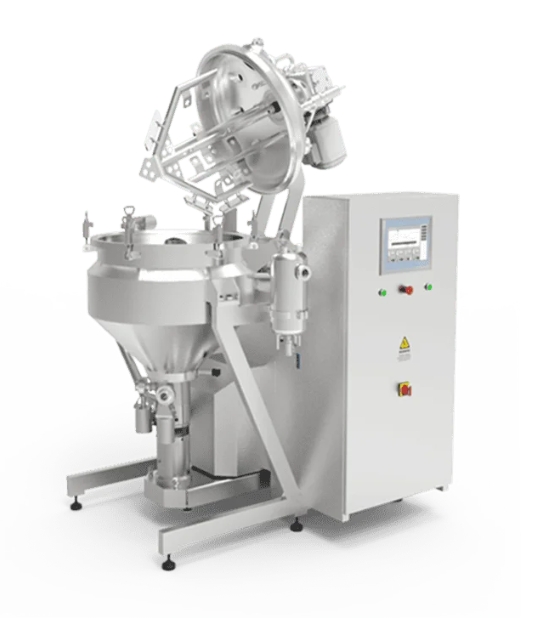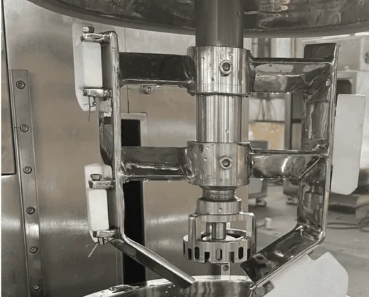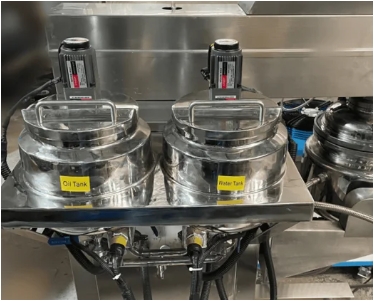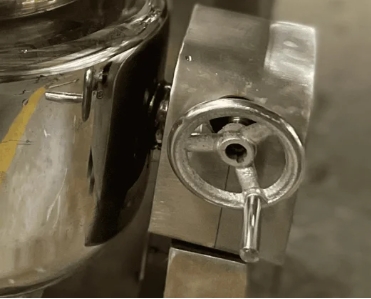Common Failures in External Circulation Emulsifying Mixers—And How to Fix Them

External circulation emulsifying mixers have become essential equipment in industries such as pharmaceuticals, cosmetics, food processing, and chemicals. These advanced mixers play a critical role in achieving uniform emulsification, dispersing particles, and refining textures—ensuring high product consistency and efficiency.
However, like any mechanical system, these machines can face occasional issues that disrupt productivity or affect output quality. Knowing how to identify and resolve these problems quickly can save time, reduce downtime, and extend the life of the equipment.
In this article, we explore the most common failures encountered with external circulation emulsifying mixers and share expert troubleshooting tips, drawing from the insights of Orisun, a company dedicated to precision mechanical design and manufacturing.
What Is an External Circulation Emulsifying Mixer?
An external circulation emulsifying mixeruses a recirculating loop system to continuously draw the product out of the mixing tank, pass it through a high-shear emulsifying head, and return it to the vessel. This process ensures even particle size distribution, improved homogenization, and better control over the final product texture.
This type of mixer is highly efficient and is ideal for processing viscous materials or products that require high stability.
Common Failures and Their Solutions
1. Inadequate Emulsification or Product Separation
Symptoms: Inconsistent product texture, visible phase separation, or poor viscosity.
Causes:
Worn or damaged rotor/stator heads
Incorrect flow rate settings
Improper shear force due to low-speed operation
Solutions:
Inspect and replace worn rotor-stator components regularly.
Calibrate the motor speed and check for correct circulation rates.
Ensure material feed rate matches system capacity.
Orisun Insight: Orisun engineers often recommend using custom-designed emulsifying heads based on material viscosity and particle size. This can greatly reduce separation issues and improve overall product homogeneity.

2. Pump Circulation Failure
Symptoms: No product returning to the tank, erratic flow, or overheating of the system.
Causes:
Blockage in the circulation line
Airlocks in the pump system
Pump seal wear or leakage
Solutions:
Regularly clean pipelines to prevent buildup or clogs.
Ensure proper priming to eliminate airlocks before operation.
Inspect seals and replace faulty pump components as needed.
3. Excessive Vibration or Noise
Symptoms: Unusual mechanical noises or vibration during mixing operation.
Causes:
Imbalanced rotor or misalignment in shaft
Loose fasteners or mechanical components
Bearing failure
Solutions:
Check shaft alignment and secure all bolts and couplings.
Replace faulty bearings and ensure smooth operation of moving parts.
Use dynamic balancing tools to correct rotor imbalance.
Pro Tip from Orisun: Integrating vibration sensors into the mixer setup can help monitor performance and prevent long-term damage by alerting operators to anomalies in real time.

4. Overheating of Motor or Mixing Chamber
Symptoms: Mixer stops unexpectedly, thermal cut-offs triggered, or product quality degrades due to heat.
Causes:
Continuous operation beyond rated capacity
Poor ventilation around the motor housing
Lack of cooling system or thermal management
Solutions:
Operate the mixer within its rated load and duration.
Ensure adequate cooling fans or water-jacketed systems are functioning properly.
Install thermal sensors to monitor temperature during production.
5. Frequent Mechanical Downtime
Symptoms: Regular equipment failure, increased maintenance time, or inconsistent batch cycles.
Causes:
Aging components not replaced in time
Poor-quality build or inadequate customization for product requirements
Inadequate training for operators
Solutions:
Adopt a preventive maintenance schedule rather than reactive repairs.
Partner with trusted manufacturers like Orisun, who provide tailored mechanical solutions built for durability and ease of service.
Train staff on proper operating procedures and safety protocols.

Why Choose Orisun for Emulsifying Mixer Solutions?
Orisun is a trusted name in mechanical design and manufacturing, known for delivering customized, high-efficiency solutions for complex industrial challenges. With years of experience, Orisun has helped clients across sectors overcome equipment limitations and optimize their mixing systems for better performance.
What Orisun Offers:
Precision-engineered emulsifying mixers designed for your material needs
On-site installation, training, and technical support
Durable components with extended service life and minimal maintenance
Smart diagnostics and system integration to minimize failure risks
Orisun’s commitment to quality and innovation ensures that your operations remain efficient, reliable, and ahead of the curve.

Conclusion
External circulation emulsifying mixers are powerful tools for high-precision mixing, but like any complex equipment, they require careful maintenance and thoughtful troubleshooting. Understanding the root causes of common issues and applying targeted solutions can significantly improve performance and product quality.
By working with experienced manufacturers like Orisun, you gain more than a machine—you gain a reliable partner in innovation and operational success.
Frequently Asked Questions (FAQ)
Q1: How often should emulsifying mixer parts be replaced?
A: Critical parts like seals, rotor-stator heads, and bearings should be inspected regularly—every 6 to 12 months depending on usage—and replaced as needed.
Q2: Can Orisun customize mixers for specific industries?
A: Yes. Orisun specializes in tailoring emulsifying mixers for industries such as cosmetics, pharmaceuticals, and food processing, ensuring optimized performance for each application.
Q3: What safety features should I look for in an external circulation mixer?
A: Look for overload protection, thermal sensors, emergency stop systems, and anti-vibration mounting—all of which Orisun can integrate into their systems.
Q4: How can I reduce energy consumption in mixer operations?
A: Use insulated mixing tanks, efficient motor drives, and monitor load levels. Orisun offers energy-saving motor systems for its emulsifying equipment.
The Benefits of External Circulation Emulsifying Mixers in Food Processing
www.orisunmachinery.com
Orisun
